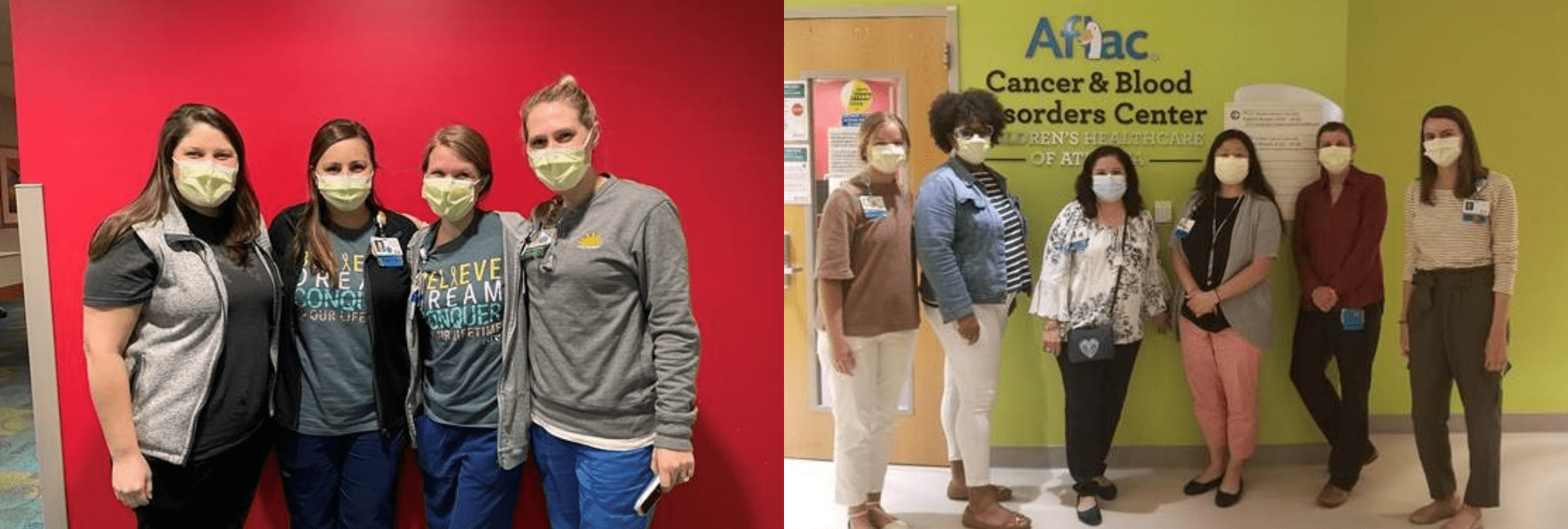While we rightfully acknowledge and applaud the doctors and nurses who care for the precious patients we serve, they aren’t the only members of the healthcare team who work so hard to return children to health. This month, we celebrate two important members of the team who don’t always get the recognition they deserve.
March is Social Work Month, and a social worker is an essential resource for a family fighting pediatric cancer. Kristin Frazier has been a social worker at Children’s Healthcare of Atlanta for 11 years. Her focus is on children fighting leukemia or lymphoma, and she works with families from the moment of diagnosis.
“Our primary role is to provide emotional support,” Kristin said. “It’s hard to think clearly when you’ve just been told your child has cancer. So I will visit with them often in the beginning to act as a bridge between the medical team and the family to make sure they understand the plan.”
Balancing life and cancer treatment can be a nightmare, so the second aspect of the social workers’ job is logistical. Families have to quickly learn how to manage things such as school for the patient and siblings, insurance, work, and finances. Social workers connect families with resources needed to cope with all of these newfound pressures. CURE is one of those resources.
“The cost of cancer treatment is so high it can affect a family of any income level,” said Kristin. “CURE is responsive to any need we identify, from emergency financial assistance to lodging and counseling. Being able to reduce the stress of a family in treatment is huge.”
Kristin said the ultimate win in her job is seeing a child finish treatment and ring the bell. But even during tough days, there are things that encourage her.
“Seeing a child who pushes through things that are really hard or watching a family come together to make difficult decisions is gratifying.”
March is also National Child Life Month. A child life specialist wears many hats in the patient journey. Becca Doobrow has been a child life specialist at Children’s Healthcare of Atlanta for four years. As a youngster, she raised money for children fighting cancer and knew she wanted her life’s work to be in pediatric oncology.
According to Becca, there are five main roles that the child life specialist plays.
- Decrease anxiety and fear when a patient is admitted and to help normalize the hospital setting through play and therapeutic activities.
- Help children cope through medical procedures and provide a distraction as the procedure gets started.
- Make a child feel empowered by explaining their diagnosis and treatment in terms they can understand.
- Help connect siblings throughout the hospital experience, which has been incredibly difficult during the pandemic.
- Provide bereavement and legacy-building opportunities for parents should the worst happen.
“Watching a child you’ve been working with since diagnosis ring the bell is incredibly fulfilling,” Becca said. “But it is very rewarding when I help a child who is really scared about a procedure cope with their anxiety.”
Ultimately, her goal is for the patient to gain the skills to cope with procedures and treatments on their own. Even if the child can cope, there is still room for a child life specialist.
“I try to be a consistent part of the patient’s treatment,” Becca said. “I want to do one fun little thing with all of my patients every day to bring them up.”
There are many members of the team that make sick children well. This month, we recognize and thank the social workers and child life specialists who work with the patients and families we serve.




